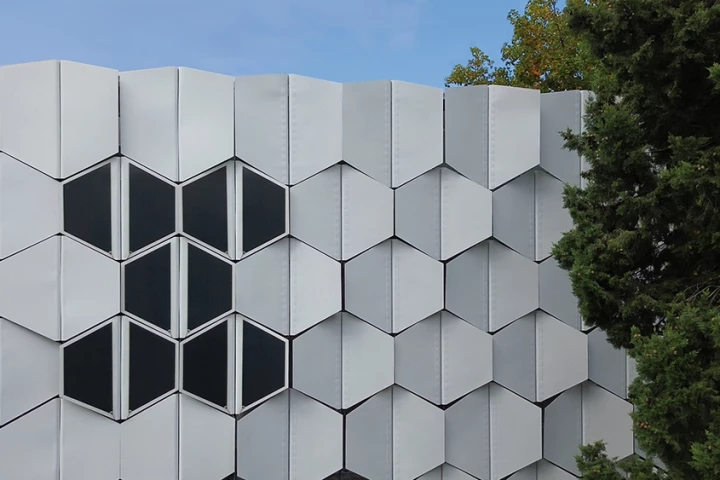University of Fribourg
-
Nobody likes buildings that are too hot in the summer or too cold in the winter. That's where the FlectoLine facade comes in, as it uses two bio-inspired mechanisms to regulate how much solar thermal energy gets through a building's windows.
-
Scientists have replicated the seed-delivery system used by wild oats, resulting in a seed-carrying bio-hybrid "robot." Scores of the tiny devices could one day be utilized for much easier, more effective aerial seeding of crops or even new forests.
-
When lightweight composite materials are used in fields such as aerospace, it's vitally important to know if they're experiencing mechanical stress – before they fail. A new composite is able to do so, simply by fluorescing under UV light.
-
Pesticides may indeed kill plant pathogens, but they're also harmful to the environment. Newly developed nanoparticles may provide a more eco-friendly alternative, as they boost the immune systems of crop plants, then harmlessly dissolve.
-
It's always helpful if materials let you know when they're under stress, so that changes can be made before catastrophic failures occur. A new polymer is designed to provide such a warning, as it glows when stretched.
-
An organism that is pretty good at generating biocompatible power (for itself, at least) is the electric eel, and scientists have now used the high-voltage species as a blueprint for a promising new self-charging device that could one day power things like pacemakers and prosthetics.
-
Scientists are working on biological fuel cells, that could be used to power medical implants using the patient's own blood sugar.
-
Newly-created polymers liquefy and fill in scratches when exposed to UV light, then resolidify once the light source is removed.







